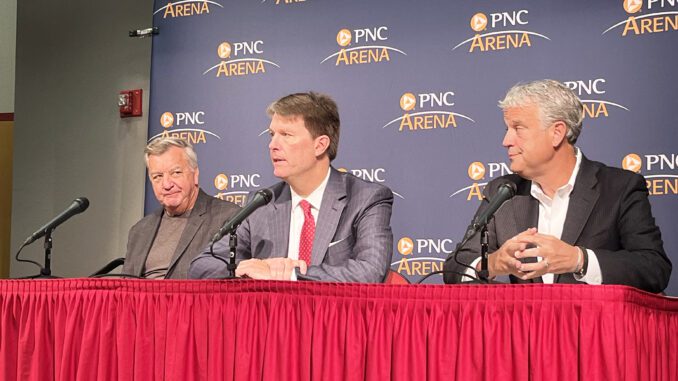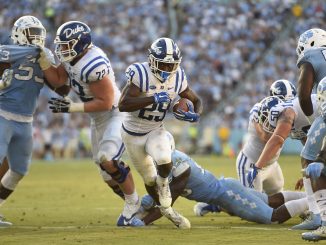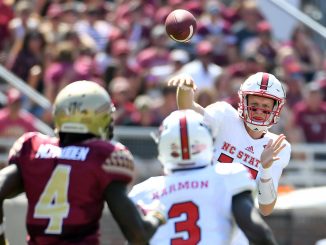

RALEIGH — The original promise of the Hartford Whalers’ relocation to North Carolina in 1997 was bringing the NHL to Raleigh. After two seasons in Greensboro, the Carolina Hurricanes moved into the new Entertainment & Sports Arena, a nearly 19,000-seat venue off Wade Avenue to be shared with NC State basketball, with the expectation that it would lead to growth in an area of the city that also had Carter-Finley Stadium, the State Fairgrounds — and little else.
Nearly a quarter-century later, those hopes are poised to become a reality.
“I think that this potential development project is going to be the greatest thing to happen to West Raleigh since North Carolina State decided to build its university there,” said Centennial Authority chairman Philip Isley at Tuesday’s press conference that announced $300 million in renovations to now-named PNC Arena, a 20-year lease extension with the Hurricanes and an agreement to allow team owner Tom Dundon to develop nearly 80 acres around the arena and create the entertainment district that was long expected to materialize when the NHL came to Raleigh.
Dundon and the Hurricanes had tied the team’s commitment to staying in the Triangle with authorization to turn the arena’s vast parking lots into a mixed-use district, and the team owner has already committed to spending $800 million — an amount that could balloon to more than twice that — to make that finally happen.
“Tom is a developer,” Hurricanes president and general manager Don Waddell said at Tuesday morning’s press conference announcing the agreement. “He’s developed a lot of property in Texas. He sees an opportunity like this, he gets excited. He is thrilled about this deal, not only for the hockey team because of the lease, but the development also.”
The development around the arena would include retail space and restaurants, offices, a high-end hotel, a 4,000-seat music venue, parking decks and residential space that would include affordable housing. Dundon and Gale Force Holdings — the parent company of the Hurricanes — also plans a sportsbook that would take advantage of the state’s recent decision to legalize sports betting.
Isley and the Centennial Authority — the governing body that owns PNC Arena — had to toe a delicate line to get all sides involved to agree to the complicated and wide-ranging deal. That included satisfying NC State and its commitment to maintaining its game day atmosphere for football games at Carter-Finley Stadium, and also securing the $300 million from the city and Wake County in tourism tax funds for arena renovations.
While the Hurricanes have never threatened to leave North Carolina, it wasn’t an impossibility. It gave the Hurricanes leverage in the negotiations, especially when one considers Houston — about a 3½-hour drive from Dundon’s adopted hometown of Dallas — is considered a viable future NHL market.
The agreement to keep the Hurricanes at PNC Arena through at least 2044 solidifies Dundon’s place in North Carolina sports history. While Peter Karmanos Jr. — the Hockey Hall of Famer who sold the majority share of the Hurricanes to Dundon in January 2018 — brought the team and the 2006 Stanley Cup to Raleigh as owner for more than two decades, the franchise had fizzled in the last decade of his stewardship.
Dundon infused energy — and money— into the team, and his decision to promote Rod Brind’Amour to head coach paid immediate dividends. Carolina has made the playoffs in all five of Brind’Amour’s seasons leading the team, twice reaching the Eastern Conference final.
He’s now solidified that the Hurricanes’ home is in Raleigh for the foreseeable future. He and Waddell even secured more marquee NHL events in the near future. Last year’s wildly successful Stadium Series outdoor game at Carter-Finley Stadium will be revisited, and the league has also agreed to bring the All-Star Game back to Raleigh. The Hurricanes hosted the event in 2011.
Discussions on how to best use the $300 million for renovations have begun in earnest, and that work could begin as early as next summer.
A two-year extension of the naming rights deal with PNC Bank will end following the 2023-24, creating the possibility that the next era of the arena will be under a new name.
No matter the name, the home of the Hurricanes is entering a new era. And the team is going nowhere.



